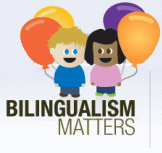16th International Conference
GREEK APPLIED LINGUISTICS ASSOCIATION
on
“Migration and Language Education”
Thessaloniki, Greece, 6-8 October 2017
SYMPOSIUM of "Me 2 Glosses"
Á research & information centre about bilingualism and language learning
Contributors (in alphabetical order)
Nikos Amvrazis & Katerina Alexandri (Aristotle University of
Thessaloniki)
Teachers’ and students’ attitudes towards learning Greek as a second or
foreign language: Convergences and deviations
Ifigeneia Dosi & Despina Papadopoulou (Aristotle University of
Thessaloniki)
The production and comprehension of verbal aspect in heritage speakers
Lia Efstathiadi (Aristotle University of Thessaloniki)
Narrative production in L1 Greek and L2 English and the cognitive gains
witnessed in young learners of English receiving varied exposure to CLIL
Maria Kaltsa & Aleka Prentza (Aristotle University of Thessaloniki)
Lexical and Grammatical Development in Bilingual Children
Maria Katsiperi, Natalia Nannou & Georgia Fotiadou (Aristotle
University of Thessaloniki)
What's with anaphora? Discussing evidence from adult bilinguals, methods and
other factors
Argyro Moumtzidou & Valbona Hystuna (ARSIS: Association for the Social
Support of Youth)
The complexity, depth and breadth of the ARSIS’ Youth Support Center's
pedagogical activities. Towards an evolving pedagogical approach.
Eleni Peristeri1, Eleni Baldimtsi1, Maria Andreou2,
Ianthi Maria Tsimpli3 & Ageliki Nicolopoulou4 (1Aristotle
University of Thessaloniki, 2University of Cologne, 3University
of Cambridge, 4Lehigh University)
Bilingual children with High Functioning Autism Spectrum Disorder: Evidence
from oral narratives
Symposium summary
The present thematic symposium is organised by the information service for bilingual raising “Me 2 Glosses” or “With two languages”! The service concerns a “branch” – partner organisation of the information service of Bilingualism Matters at the University of Edinburgh. The founder and general director of the service is Professor Antonella Sorace, who is internationally recognised as one of the world’s most renowned researchers on Bilingualism. In Greece, Professor Ianthi Maria Tsimpli who is a distinguished researcher in language acquisition issues founded the service in 2012. The current director of the branch, Professor Marina Mattheoudakis, is one of the most active members of the academic community in topics concerning second language learning.
Members of “Me 2 Glosses” or “With two languages” are a group of researchers in Aristotle University of Thessaloniki, who are concerned with issues of language development and bilingualism in children and adult populations. Their aim is to bridge the gap between the researchers of bilingualism and the bilingual speakers (families, teachers and institutions) in order to help as many children as possible benefit from Bilingualism. Their goal is to open a communication channel between all those people who are concerned with bilingualism matters. Their priority is to promote a dialogue that responds to questions regarding bilingualism with research as a tool, when in need. Thus, they are always very happy to visit schools, nurseries, kindergartens or other organised events with local and other institutions and talk about bilingualism.
This symposium hosts seven talks that present empirical data and discuss the benefits of bilingualism in various contexts. More specifically, the first three talks approach the topic with examples of bilingual children (of (a)typical language development) from various combinations of languages. Maria Kaltsa and Aleka Prentza examine how bilingualism, age of onset of exposure to Greek (AoO), language dominance and L1 and L2 input affect lexical and grammatical development in Albanian-Greek speaking bilingual children. Ifigenia Dosi and Despina Papadopoulou present the comprehension and production of (im)perfective verbal aspect in heritage Greek-German and Greek-English children. Eleni Peristeri, Eleni Baldimtsi, Maria Andreou, Ianthi Maria Tsimpli, and Ageliki Nicolopoulou investigate the narrative skills of bilingual and monolingual ASD children and compare them to participants’ non-verbal EFs, namely inhibition and attention-shifting. The fourth talk, by Maria Katsiperi, Natalia Nannou and Georgia Fotiadou, discusses differences among adult groups of bilinguals with respect to methodological issues, language typology and language exposure. The fifth talk, by Lia Efstathiadi, presents the benefits of L2 learning in a partial immersion context (for child populations), whiles in the sixth talk Nikos Amvrazis & Katerina Alexandri discuss educators’ and adult learners’ preferences for various teaching methods. Finally, the seventh talk, by Argyro Moumtzidou and Valbona Hystuna, introduces the educational system of the NGO ARSIS and how the organization deals with the migrants’ flow.


